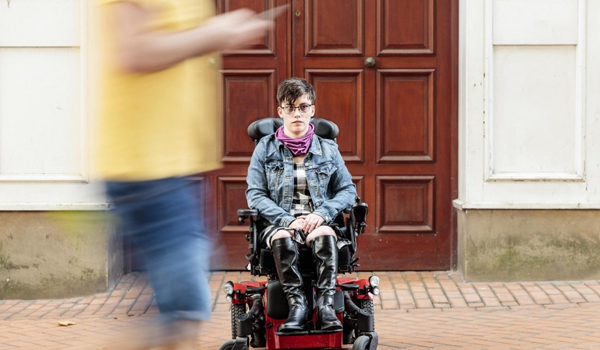Lockdowns trigger surge in online disability hate crime
Online disability hate crime soared by more than 50 per cent across England and Wales during the past year, according to new police figures released on Wednesday (October 6).
The latest data, gathered by disability charities United Response and Leonard Cheshire, shows a huge spike in crimes during the national and regional coronavirus lockdowns.
More than 9,200 disability hate crimes were reported to police, with almost half (44 per cent) classified as ‘violent’ – involving assault and possession of weapons.
This equates to around 25 crimes reported to police every day in 2020/21, but the charities warn the findings “scarcely scratch the surface” of the true scale of offending due to under-reporting.
“Criminals were not deterred by lockdowns, as increasing numbers headed online to abuse disabled people, pushing online disability hate crime rates up 52 per cent,” said the charities.
“The same individuals continue to torment disabled people across England and Wales, with repeat offender rates rocketing by 89 per cent on 2019/20 [figures].”
They added that with just one per cent of cases referred to the Crown Prosecution Service (CPS) or charged, “it is perhaps little wonder that repeat offender rates for disability hate crime are up on the previous years”.
The data is taken from Freedom of Information responses from 39 police forces across England and Wales. The charities said nearly two thirds of these forces reported increases in disability hate crime for 2020/21 – with the highest numbers of crimes recorded by West Yorkshire Police (935) and the Metropolitan Police Service (665).
West Midlands Police recorded the biggest surge in disability hate crime – up 105.8 per cent on the previous year’s total with increases in both online (up from 159 to 336) and ‘violence’ (up from nine to 44) offences.
The charities said the latest findings also show in-person hate crime still plagued many disabled people’s lives during lockdown.
In a joint statement, United Response and Leonard Cheshire commented: “Many disabled people we spoke to said they wouldn’t report their hate crime to the police, so our findings are likely to scarcely scratch the surface of the true scale of these horrific incidents.
“The stories we’ve heard suggest many police officers do not have a good understanding of disability. So we’re calling for a specialist disability liaison officer in every police force.
“We want the government to make disability hate crime easier to report too. We hope the upcoming Home Office Hate Crime Strategy will address just this.
“We also heard about the awful, long-term impact these crimes can have on individuals; leaving them isolated and frightened to leave their home. Clearly there needs to be disability specific support for victims.
“The Government has a role to play in preventing hate crimes altogether. One of the most important steps in tackling hate crime is creating a more accepting society where differences are tolerated.”
One story highlighted by the charities involved ‘Abi’ who had almost 50,000 followers on a social media platform when she was targeted by trolls that set up hate pages.
She said the abuse was motivated by the fact that she had autism and was a member of the LGBTQ+ community, adding: “They revealed my real name and where I lived.”
The charities are also warning that as public transport commuting levels begin to surge again, there needs to be better measures to deter disability hate crime.
They said: “Despite lockdowns and low transport use, disability hate crime on rail networks remains a worrying issue, with 16 per cent of the 31 disability hate crime reports to British Transport Police in 2020/21 including violence.
“None of the reports were referred to the CPS.
One woman told the charities how she was “verbally abused for simply wanting to board the bus as a wheelchair user” when in London.
Director of Policy at Leonard Cheshire, Gemma Hope, said: “Disabled people have a right to feel safe in society and confident in reporting hate crimes. Yet many disabled people we have spoken to said they wouldn’t report the hate crime they experienced. There needs to be better access to disability specific support for victims of these crimes, and reporting processes need to be made easier too.”
Having conducted in-depth consultation with disabled people who have experienced hate crime, the charities said they are keen to see disability-specific support provided by police or charities to help people move forward after experiencing hate crime.


